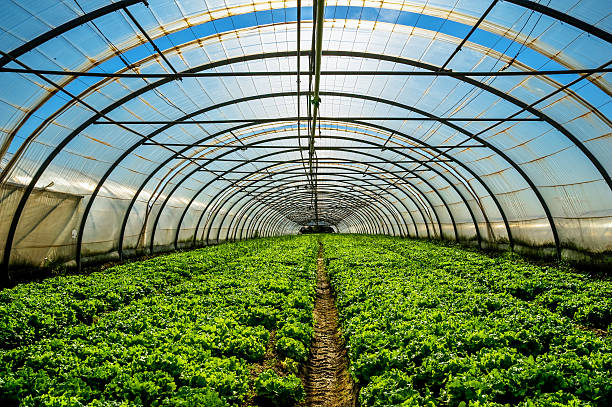Shedding Light on High Quality: Monarch Greenhouse Sheds Utah Exceptional Designs
Wiki Article
Greenhouse Farming: Optimizing Crop Yields and Sustainability
With controlled settings and reduced water usage, greenhouse farming offers the perfect solution for year-round production of fresh fruit and vegetables. Discover the benefits of greenhouse farming and begin gaining the advantages today!Benefits of Greenhouse Farming
Are you wondering what makes greenhouse farming so beneficial? Well, let me tell you! Among the significant benefits of greenhouse farming is the capacity to control the atmosphere in which crops are grown. With a greenhouse, you can control factors like temperature, humidity, and light to enhance plant development. This means that you can expand plants throughout the year, despite the climate condition outside.An additional advantage of greenhouse farming is the decrease in water use. By making use of water extra efficiently, greenhouse farming assists to save this valuable resource.
Additionally, greenhouse farming enables better parasite and illness management. With the regulated environment, it is less complicated to stop and regulate the spread of pests and illness. This decreases the requirement for harmful pesticides, making greenhouse-grown plants more secure and much more eco-friendly.
Furthermore, greenhouse farming offers security versus severe weather events. Crops expanded in greenhouses are secured from hefty rainfall, strong winds, and hailstorms, which can damage or ruin exterior plants. Monarch Commercial Greenhouse Utah. This defense makes certain a more trustworthy and secure plant return, also throughout unforeseeable weather condition problems

Making Best Use Of Plant Returns With Managed Atmospheres
To optimize crop yields in greenhouse farming, you can achieve optimum outcomes by managing the environment. By carefully managing variables such as temperature level, humidity, carbon, and light dioxide degrees, you can produce the perfect problems for your crops to thrive. Among the crucial advantages of greenhouse farming is the ability to regulate these ecological elements, enabling you to tailor them to the details needs of each crop. You can adjust the temperature level to promote faster development during the day and reduced it somewhat at evening to simulate natural changes. Similarly, you can regulate humidity degrees to avoid conditions and make sure proper transpiration. By giving the best quantity and quality of light, you can expand the growing season and rise yields. Furthermore, by regulating carbon dioxide degrees, you can boost photosynthesis and motivate strenuous development. By implementing these managed environments, you can make best use of crop returns and attain consistent, top notch fruit and vegetables throughout the year.Encouraging Sustainability With Greenhouse Farming
Make best use of sustainability in greenhouse farming by implementing efficient resource management techniques. One essential aspect of promoting sustainability is the management of water usage. By executing systems such as drip irrigation and recirculation, you can considerably reduce water wastefulness and make sure that every decrease counts. Furthermore, utilizing natural and naturally degradable products for parasite control and fertilizing can assist lessen environmental impact. Integrated Pest Management (IPM) strategies, for instance, entail the usage of helpful bugs to control pests, reducing the demand for unsafe chemicals. Power usage can be reduced by making use of sustainable energy resources, such as solar panels, to power greenhouse operations. This not just reduces dependence on fossil gas however additionally reduces greenhouse gas emissions. Correct waste administration is another critical aspect in promoting sustainability. Executing recycling and composting systems can reduce the quantity of waste sent to garbage dumps while also giving nutrient-rich compost for plant development. Incorporating lasting techniques in greenhouse style, such as making use of energy-efficient materials and enhancing all-natural illumination, can better enhance sustainability. By embracing these source management methods, you can add to a more sustainable future in greenhouse farming.Reducing Water Usage in Greenhouse Farming
By carrying out effective water management strategies, you can considerably lower water use in greenhouse farming. Water is a vital resource in farming, and saving it not just profits the setting yet additionally aids to take full advantage of crop yields and earnings. One efficient technique to minimize water use is with using drip irrigation systems. These systems provide water directly to the plant's roots, reducing evaporation and ensuring that every drop is used efficiently. Additionally, surveillance and regulating the moisture degrees inside the greenhouse can avoid unneeded water loss. By using sensing units and automated systems, you can readjust the air flow and irrigation accordingly, optimizing water use based upon the certain requirements of your crops. One more technique is to capture and recycle rainwater. Accumulating rain from the greenhouse roof covering and storing it in the lawn ranger storage tanks enables you to view website supplement your irrigation needs without depending only on freshwater resources. In addition, implementing mulching methods can help preserve soil wetness, reducing the frequency of irrigation. Mulch acts as an obstacle, avoiding water evaporation and maintaining the dirt cool and moist. By taking on these water-saving methods, you can minimize water waste, save sources, and develop a more lasting future for greenhouse farming.Year-Round Production of Fresh Produce in Greenhouses
Greenhouses provide a controlled atmosphere that allows you to expand crops no matter of the outside weather conditions. Greenhouses can be geared up with home heating and cooling systems to maintain optimum temperatures for different plants. By executing these methods, you can make best use of the efficiency of your greenhouse and take pleasure in a stable supply of fresh generate all year long.
Final Thought
Finally, greenhouse farming provides numerous advantages for making the most of plant returns and promoting sustainability. By using controlled settings, farmers can optimize growing problems and raise efficiency. Additionally, greenhouse farming allows for minimized water usage, making it an ecologically friendly selection. Additionally, the capability to generate fresh fruit and vegetables year-round in greenhouses makes sure a consistent supply of nourishing food. Overall, greenhouse farming is a reliable and lasting technique for satisfying the needs of a growing populace while lessening ecological impact.One of the major benefits of greenhouse farming is the ability to manage the environment in which crops are expanded.To optimize crop returns in greenhouse farming, you can accomplish optimum results by regulating the Recommended Site environment. One of the key advantages of greenhouse farming is the ability to manage these ecological factors, permitting you to customize them to the specific requirements of each crop.By executing reliable water management strategies, you can significantly minimize water usage in greenhouse farming.In conclusion, greenhouse farming gives various benefits for maximizing plant returns and advertising sustainability.
Report this wiki page